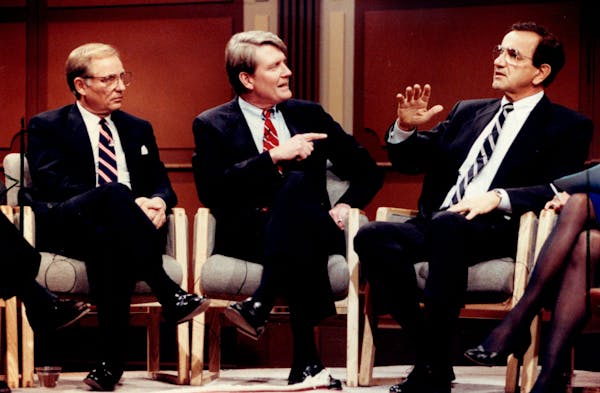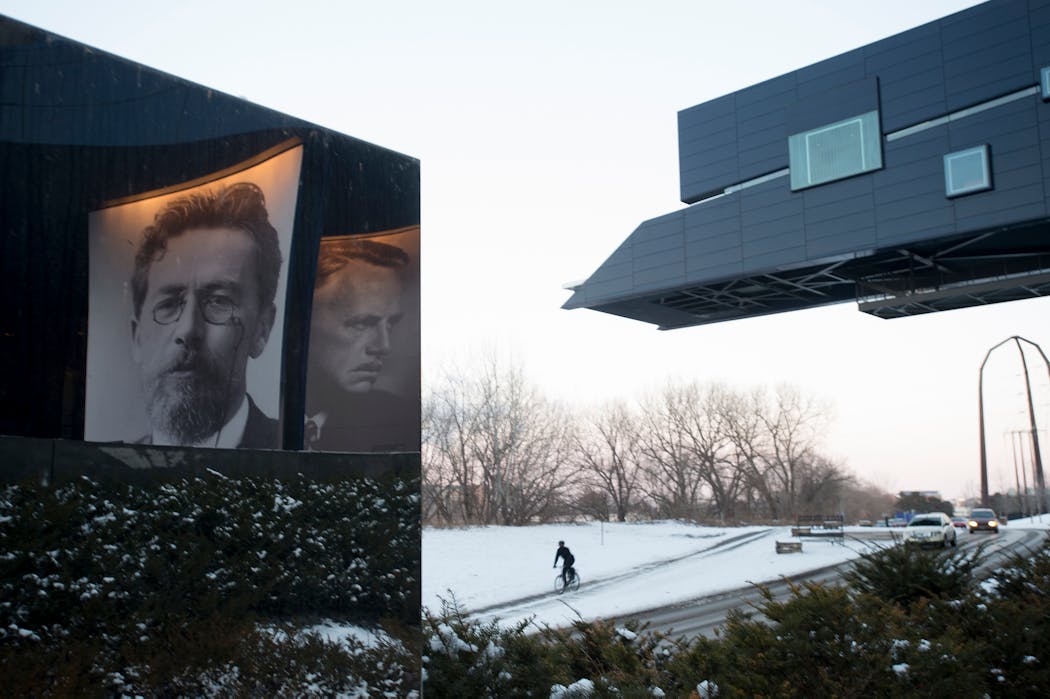Why workers are reluctant to come to Minnesota, but stay once they're here
Listen and subscribe to our podcast: Via Apple Podcasts | Spotify | Stitcher
It's an old saying in the recruiting industry: Minnesota is the hardest state to recruit employees to, but also the hardest state to recruit employees away from.
St. Louis Park resident Sarah Schueller has heard the paradoxical axiom a number of times since moving here from Chicago a few years ago. She asked Curious Minnesota, the Star Tribune's community reporting project fueled by reader questions, whether it's true.
"It seemed plausible, but also seemed like something a recruiter or a very passionate Minnesotan might make up," she wrote in an email. "I really just want to know if there is any actual data to back it up."
The short answer is that while Minnesota loses more population than it gains each year, the adage generally holds true among people who are recruited to the Twin Cities for jobs. Metro area job recruits are often reluctant to come to Minnesota. But once here, they tend to stick around.
The issue is particularly relevant nowadays, as Minnesota grapples with one of the country's worst workforce shortages.
"To get folks to even consider coming here is extremely difficult," said Adam Hoffarber, managing partner at SkyWater Search Partners, an executive recruiting firm in Minnetonka. "When we talk to candidates, probably less than 1 in 10 would be willing to relocate to Minneapolis."
But luring away someone who already lives here is also hard, Hoffarber said. "They do not want to leave."
Outward migration
Minnesota loses more residents overall to other states than it gains — factoring all people, including those who are not being recruited for jobs. This could include people moving during retirement, for example, or going away to college.
From April 2020 to July 2021, the state had a net loss of 16,000 people, said Sean O'Neil, director of economic development and research for the Minnesota Chamber of Commerce.
Only eight other states were worse at retaining residents. California and New York ranked worst for retention. Florida's net influx of residents was the highest, by contrast, followed by six other Sun Belt states.
Overall retention is "where you start seeing some of [Minnesota's] challenges, like our high personal income tax rates, child-care shortages and housing availability challenges that have hindered growth in recent years," O'Neil said.
But the trend is different among college-educated, high-paid professionals — the kind of people recruiters target, said Myles Shaver, a professor at the University of Minnesota's Carlson School of Management.
"The rate at which people leave the Twin Cities is lower than any major metro in the country," Shaver said. "I can see that in 40 years of data."
For these professionals, career opportunities are the top draw, said Shaver, author of "Headquarters Economy: Managers, Mobility, and Migration." Minnesota provides them with more Fortune 500 corporate headquarters per capita than any other state — 16 in total — as well as low unemployment and a high workforce participation rate.
'Reluctant to leave'
In a survey Shaver conducted of more than 2,700 employees of large companies, 65% of those who came to the Twin Cities from elsewhere cited jobs for themselves or their spouses as a major reason for moving here. They told Shaver they also valued Minnesota's strong local economy and good public schools.
Only 28% of people surveyed told Shaver they would prefer to live somewhere else. Their reasons for remaining in the state included quality of life and jobs.
"People who were born in Minnesota are reluctant to leave. People here who weren't born in Minnesota also are reluctant to leave," Shaver said.
Many transplants might have hesitated to move here in the first place based on preconceived notions of what the place is like, Shaver said. Some told him they saw it as a temporary stop before moving on to better things. But "once people experience [Minnesota], it's very different from their expectation."
Looking specifically at the Twin Cities, workers don't flock to the metro area as much as some other cities, said Matt Lewis, vice president for strategic initiatives for Greater MSP, a regional economic development organization. But those who do migrate to the region are more likely to stick around than to leave.
In a 2018 analysis of five years of data, an average of about 48,000 employed residents moved to the metro area every year from other U.S. locations, while about 43,000 moved away.
The Twin Cities have more incoming residents than most other Midwest metro areas, Lewis said. However, it's no match for cities like Denver, Austin or Tampa.
"Overall, [the Twin Cities] tends to rank in the top quartile of the nation's top 25 largest metros at retention and in the bottom quartile of the nation's top 25 metros in attraction," Lewis said.
An image problem
Why wouldn't people want to move here in the first place?
The cold weather is an obvious answer, but likely not the entire reason. Toronto's winters are nearly as cold, but people don't mind moving there, Lewis said. And people willingly relocate to "a place where it rains every day," he noted, referring to Seattle.
The full explanation is more nuanced. Residents know Minnesota's lifestyle has a lot going for it: a lively theater and arts scene (state spending on the arts is higher than almost all other states, and No. 1 per capita), many local parks (Minneapolis and St. Paul are among the top five U.S. cities for parks), good restaurants (more James Beard Award winners than most other states), highly regarded public schools and a top-ranked health care system.
But the rest of the country doesn't know about those things, Lewis said. Other locations might conjure images of beaches, mountains, a music festival or a thriving tech industry. The assets that make Minnesota a great place to live are either too diverse or too low-profile.
"The things that kind of rise to the top are flashier," Lewis said. "The way we do things here is a little bit different; there tends to be a lot of small things going on [and] there's a great diversity of assets."
Why isn't the word out? Maybe the state doesn't market itself as well as other places, Lewis suggested. Maybe Minnesotans are just too modest.
"We're not a state to brag about ourselves," Hoffarber said.
If you'd like to submit a Curious Minnesota question, fill out the form below:
Read more Curious Minnesota stories:
Why do so many Fortune 500 companies call Minnesota home?
Were Minneapolis' skyways first created to combat the cold – or something else?
Should Minnesota be considered part of the Midwest?
Why are all of Minnesota's pro teams named after the state, not a city?
Who controls the colorful lights in Minneapolis' night skyline?
What are Minnesota's most exported products?






